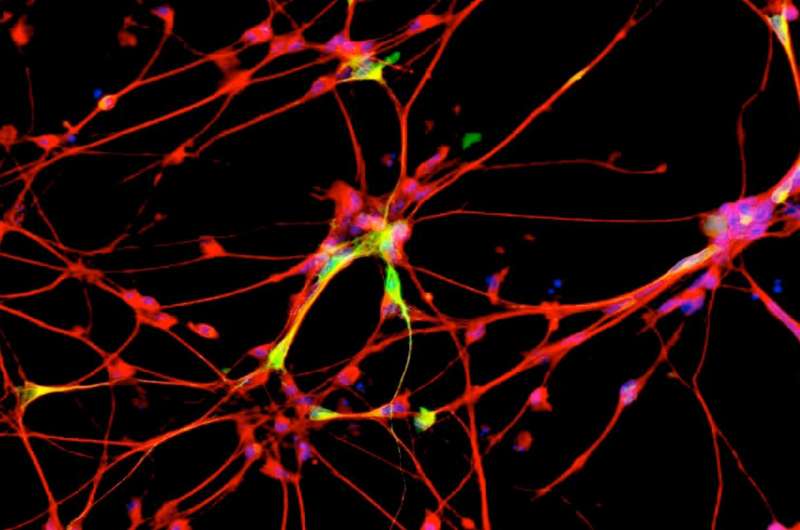Diabetes drug slows experimental Parkinson's progression, human trials to begin next year

A new investigational drug originally developed for type 2 diabetes is being readied for human clinical trials in search of the world's first treatment to impede the progression of Parkinson's disease following publication of research findings today in the journal Science Translational Medicine.
"We hope this will be a watershed moment for millions of people living with Parkinson's disease," says Patrik Brundin, M.D., Ph.D., director of Van Andel Research Institute's Center for Neurodegenerative Science, chairman of The Cure Parkinson's Trust's Linked Clinical Trials Committee, and the study's senior author. "All of our research in Parkinson's models suggests this drug could potentially slow the disease's progression in people as well."
Until now, Parkinson's treatments have focused on symptom management. If successful in human trials, MSDC-0160 would be the world's first therapy to treat the underlying disease and slow its progression—potentially improving quality of life and preventing the occurrence of falls and cognitive decline. It may also reduce or delay the need for medications that can have debilitating side effects, says Brundin.
Parkinson's disease afflicts between 7-10 million people worldwide, including an estimated 1 million Americans, and these numbers are expected to increase dramatically as the average human lifespan increases. There is currently no cure, and first-line treatment has remained relatively unchanged since the introduction of levodopa in the 1960s.
Tom Isaacs, a co-founder of The Cure Parkinson's Trust who has lived with Parkinson's for 22 years, says MSDC-0160 represents one of the most promising treatment the Trust's international consortium has seen to date.
"Our scientific team has evaluated more than 120 potential treatments for Parkinson's disease, and MSDC-0160 offers the genuine prospect of being a breakthrough that could make a significant and permanent impact on people's lives in the near future," says Isaacs. "We are working tirelessly to move this drug into human trials as quickly as possible in our pursuit of a cure."
MSDC-0160 was developed by Kalamazoo, Michigan-based Metabolic Solutions Development Company (MSDC) to treat type 2 diabetes. In 2012, Brundin recognized it as an exciting drug candidate because of its mode of action, proven safety in people, local availability and the start-up company's interest in collaborating on drug repurposing initiatives. After four years of work, the effects of the drug in the laboratory exceeded Brundin's expectations.
The novelty of MSDC-0160 stems from a recently revived revelation that Parkinson's may originate, at least partially, in the body's energy metabolism. The new drug appears to regulate mitochondrial function in brain cells and restore the cells' ability to convert basic nutrients into energy. Consequently, the cells' ability to handle potentially harmful proteins is normalized, which leads to reduced inflammation and less nerve cell death.
"Parkinson's disease and diabetes may have vastly different symptoms with unrelated patient outcomes; however, we're discovering they share many underlying mechanisms at the molecular level and respond similarly to a new class of insulin sensitizers like MSDC-0160," says Jerry Colca, Ph.D., co-founder, president and chief scientific officer of MSDC.
While Brundin says he is eager to see MSDC-0160 launched into a clinical trial in Parkinson's disease, he's equally excited about the possibility of testing the drug in Lewy body dementia and other cognitive decline conditions, such as Alzheimer's disease.
"This is an immensely promising avenue for drug discovery," says Brundin. "Whatever the outcome of the upcoming trial for Parkinson's, we now have a new road to follow in search of better treatments that cut to the root of this and other insidious diseases."
The Cure Parkinson's Trust and Van Andel Research Institute are currently working with MSDC to address regulatory issues and obtain funding to organize the clinical trial, which Brundin hopes can begin sometime in 2017.
More information: "Mitochondrial pyruvate carrier regulates autophagy, inflammation, and neurodegeneration in experimental models of Parkinson's disease," stm.sciencemag.org/lookup/doi/ … scitranslmed.aag2210

















